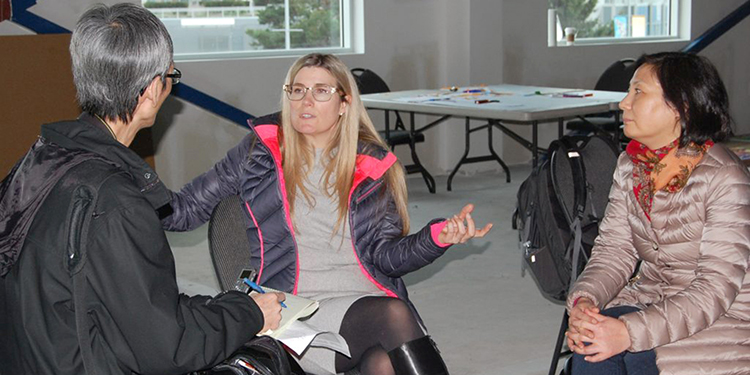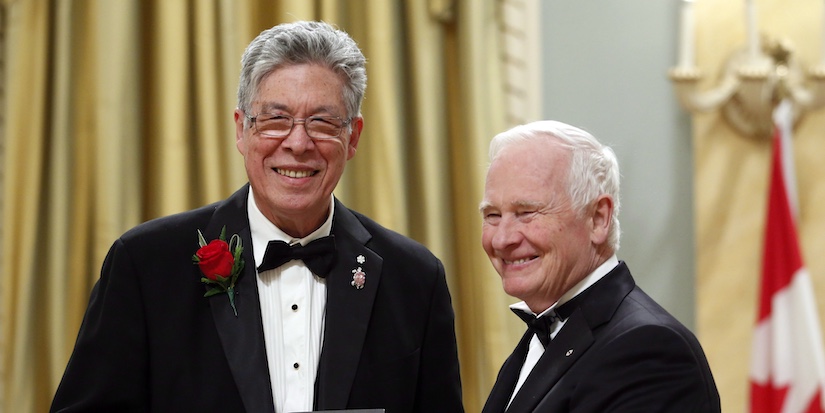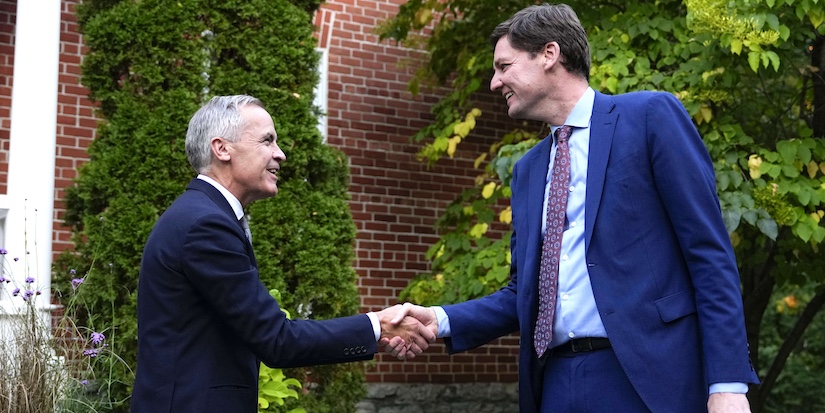Latest News
One stop shopping for complex health needs
Published 12:18 PST, Tue January 30, 2018
Last Updated: 2:12 PDT, Wed May 12, 2021
You rarely have just one health challenge as
you age, says Jennifer MacKenzie, chief operating officer for Richmond’s
community health centre.
People dealing with mental health or substance
use issues often find the same thing is true, she says.
Complex patients and their medical care
providers certainly face challenges, she says.
“Over the last couple of decades we have had
a patchwork quilt of community services, working in isolation from one another.
Our patients are living longer with multiple condition or diseases. For
example, they may have a bit of arthritis, diabetes, and a bit of dementia.
They would have to go to three different places, see three different teams, who
develop three different care plans.”
Soon, Richmond will have a community health
centre, one central place catering to people with any mental health, addiction,
or aging issues for most of their medical needs, be it a counsellor, social
worker, medical specialist, physio, occupational therapist or a whole host of
other services.
While the building is a little out of the
way, MacKenzie says finding suitable space, big enough for the centre’s needs
in Richmond was a challenge. She says the City of Richmond has assured her that
there will eventually be shuttle bus service connecting the centre to the
closest stop on Westminster Highway. There is no sidewalk between the CHC and that bus
stop. Many of the CHC’s clients may have mobility issues.
While family physicians will still be the
main point of contact for health care, the new centre will mean that a general
practitioner, or their office manager, will not have to stick-handle their
patients through the system to see professionals like specialists, therapists,
or clinical pharmacists. They will be in one place, at one time, so patients
can get more done with fewer trips in the centre.
The facility on the corner of Alderbridge Way
and Lansdowne Road is being outfitted to suit the needs of their upcoming
clients.
Elevators and ramps, wide doors, and soothing
surroundings are on the list. As well, there will be a single coordinator for a
patient instead of a hodgepodge of different people trying to do their best for
someone who may have issues outside the professional’s areas of expertise.
Just the way we now can use our electronic
devices to keep track of our work, home, and family’s appointments, reminders,
games, practices and plans in one coordinated place, MacKenzie hopes the centre
will allow for better coordination of appointments, x-rays, lab results, and
follow-ups required. This information sharing should result in a plan that
takes all of a patient’s needs into consideration, physical and emotional.
The health facility was created to offer
better care for some of our most vulnerable and complex patients. With a cut in
duplicate or conflicting medical interventions, the centre should also result
in savings of tax dollars. It is an example where kindness is also
cost-effective.
Currently, if a patient needs to see three
different medical professionals, sometimes about three different problems,
MacKenzie says, the current model means they have to go to three places, on
three different days, take theirs and the professionals’ time to tell three
people what the problem is, and hope they somehow are able to coordinate with
each other what they are planning for the patient.
If it sounds complicated or confusing, it can
be, even for the experienced professionals trying to manage a patient’s complex
needs.
One example of problems with the current
system is with medications. If a patient has poor kidney function but needs
pain medication for arthritis and then something to help with yet another
problem, we rely on physicians to pick up on drug conflicts every time
something new is added to the mix.
Sometimes, if a neighbourhood pharmacist
picks up on the problem, which they often do, it means multiple phone calls to
multiple physicians or specialists to figure out what is the best and safest
mix of meds for the patient.
The doctors don’t always agree. Often they
are very busy. This can take time and means patients often have to wait to get
the prescriptions they need.
At the new one-stop health centre, there will
be a pharmacist to review all the meds someone takes, just as your local
pharmacist can do every year by request.
Ultimately, MacKenzie says, it’s about
cooperation and communication: “Health care is not about bricks and mortar. It’s
about people and it’s about how they work with one another for these complex
populations. They need to be able to work with one another.”
A former occupational therapist, MacKenzie
says community medicine is in her blood.
“I come from a small town in rural Nova
Scotia. My dad was a doctor. My mom was a nurse. I grew up living and breathing
health care. It's what Canadians value. It’s what distinguishes us from
Americans a lot of the time.”
Richmond’s new health centre will offer fewer
trips to deal with problems because more appointments can be booked in one day
and in one place. But it is the coordination that MacKenzie sees as the centre’s
greatest strength, having health care professionals talking to each other,
conferring with each other and the patient, on how best to manage multiple
health care problems.
With the official opening scheduled for later
this year, MacKenzie says the facility will improve patient experiences,
patient care, and save multiple patient trips that she hopes will save lives
and add quality to the lives of those who need coordinated health care the
most.
“We’re not just building a community health
centre we’re actually transforming community health services here,” she says.






























